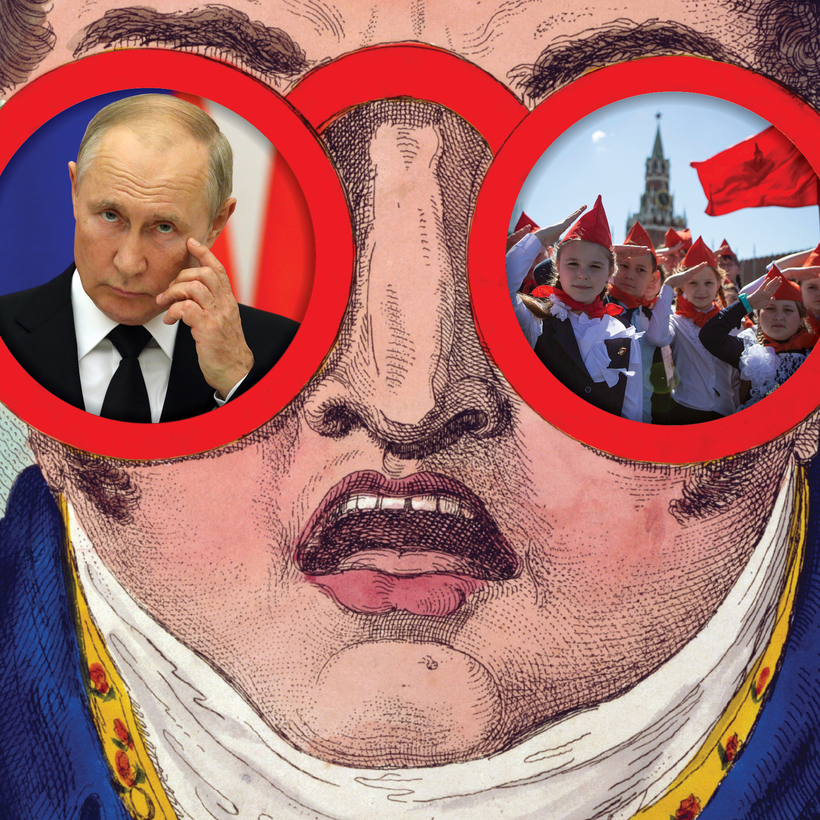“Are you a member of the opposition?” is a question I’d expect to hear during a police interrogation, not while pitching a young-adult sci-fi series to a bunch of Rolex-clad television producers in an immoderately gilded Moscow restaurant famous for its truffle-stuffed quail. But when censorship inferno, the Russian version of development hell, became a widespread phenomenon last year, it completely changed the way entertainment is made.
An important part of Vladimir Putin’s message is a near-total lack of distinction between threats foreign and domestic. The enemy—according to Russian propaganda—isn’t just at the gates. Schools, music videos, history books, and stand-up clubs—everything is a battleground now, and Ukraine, according to the narrative, is but a pawn in the hands of our mighty enemies. Putin wants to return Ukraine to Russia’s sphere of influence and paints the West—specifically the United States and Nato—as the country’s greatest foe. Knowing all too well that empires fall from within, he is even more worried about the enemy at home, opposition leader Alexei Navalny, who just won’t give up.


